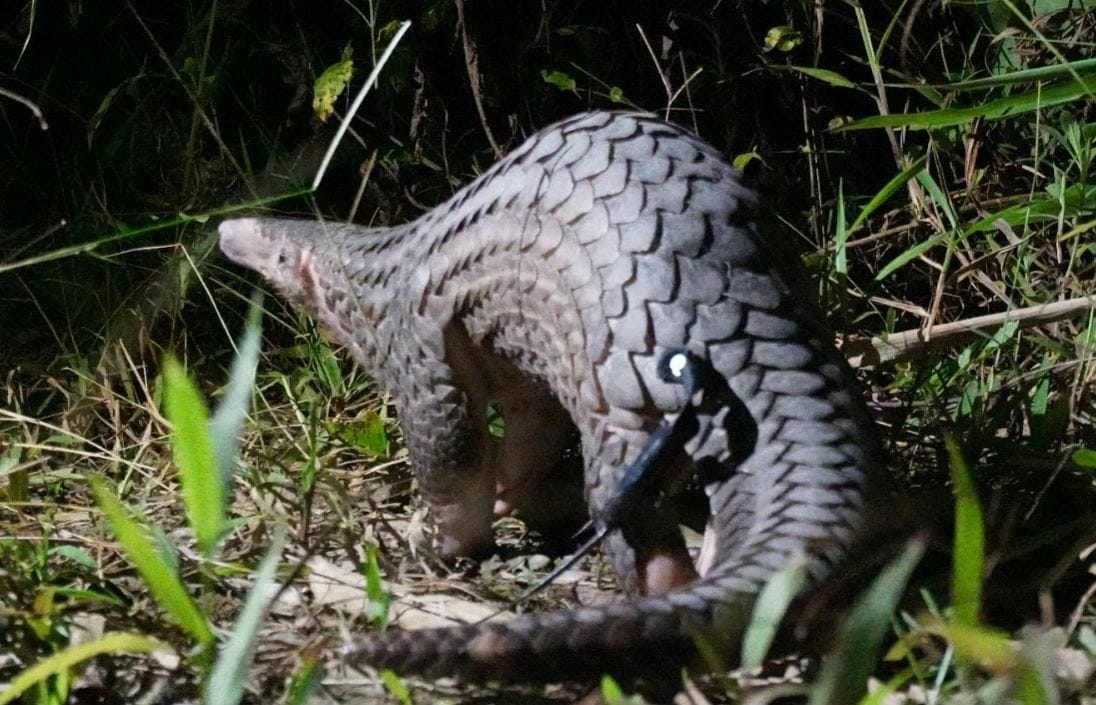If you told me a few months ago that the world would have literally gone into lockdown because of a global pandemic – I probably wouldn’t have believed you. But here we are.
At Wildlife Drones we have been working from home for over the past two weeks. Like many other organisations around the world, this has quickly become our new norm. But for how long? Who knows.
Discussions about COVID-19 have mostly focused on the negative implications that this will have to our healthcare system, economy and so on. But amidst all of this, there is a silver lining. The COVID-19 outbreak has finally forced us to take a hard look at the wildlife trade.
Let Me Explain…
The first reported cases of COVID-19, were linked to a wet market in Wuhan, China where live, wild-caught and farm-raised wildlife and livestock are forced to interact in often unsanitary conditions. These places are prolific for selling both legal and illegal animal products for consumption or for homeopathic “medicinal” purposes.
Like many other types of coronaviruses, COVID-19 is a zoonotic disease – meaning that it was transferred from animals to humans. Researchers suggest that this type of coronavirus first originated in bats, and then was passed onto a “mystery” animal before making the jump to humans.
This follows the pattern of previous coronavirus outbreaks like Severe Acute Respiratory Syndrome (SARS-CoV) and Middle East Respiratory Syndrome (MERS-CoV) which started in bats and was passed onto both civet cats and camels respectively. But in the case of COVID-19, the missing animal link is believed to be the Pangolin – the world’s most trafficked mammal.

Here at Wildlife Drones, we are privileged to be working with Save Vietnam’s Wildlife to track these fascinating animals as they are released back into the wild. So when we first heard about this news, we were surprised that the shy and docile Pangolin was at the center of this global pandemic. But honestly… it kind of makes sense.
While the international commercial trade of pangolins is illegal, scales and other body parts from thousands of them are smuggled into Asia each year. In this region, the Pangolin is highly-prized for its scales, which are used in traditional Chinese medicine, and their meat is considered a delicacy.
A recent paper published in Nature found that strains of coronavirus in pangolins were between 88.5 percent and 92.4 percent similar to COVID-19. But in saying this, the researchers stated that this new evidence was not enough to definitely conclude that the Pangolin is the intermediate host between bats and humans. Instead, they suggest that pangolins should be further investigated for their link to future coronaviruses.
So what does this now mean for the Pangolin and other wildlife?
In response to the initial outbreak, China issued a ban on wildlife markets. Then in February, China announced that they will introduce a permanent ban on the trade and consumption of wildlife in an effort to mitigate the risk of future zoonotic disease outbreaks. Although conservationists have welcomed this ban, an analysis by the Wildlife Conservation Society found that China’s ruling did not ban the trade of fur, pets, medicine or research – creating loopholes for wildlife traffickers to potentially exploit.
Vietnam has also followed in China’s footsteps after an open letter, to Vietnam’s prime minister was published. This letter was signed by many wildlife conservation organisations globally including Wildlife Drones, and it stated that, “The lesson from SARS and now COVID-19 are clear: new viruses will continue to move from wildlife to people while illegal wildlife trade and wildlife consumption continue.”
Prime Minister Phuc has responded by commissioning Vietnam’s Ministry of Agriculture and Rural Development (MARD) to draft a ban on the trade and consumption of wildlife.
These decisions are monumental – given that China and Vietnam have been prolific players in fuelling the demand for wildlife products like ivory, horns, pelts and scales. This in turn has pushed wildlife farmers, traffickers and poachers around the world to continue decimating increasingly endangered wildlife populations.
For our friend, the Pangolin, and these proposed bans provide a beacon of hope for this critically endangered species and the people who fight for their protection. While these bans are expected to come into effect later this year, I feel a bit more hopeful that amidst this Coronavirus-fuelled madness, positive change is just around the corner.
This story is written by Debbie Saunders, Director of Wildlife Drones, and first appeared on the Wildlife Drones blog.
